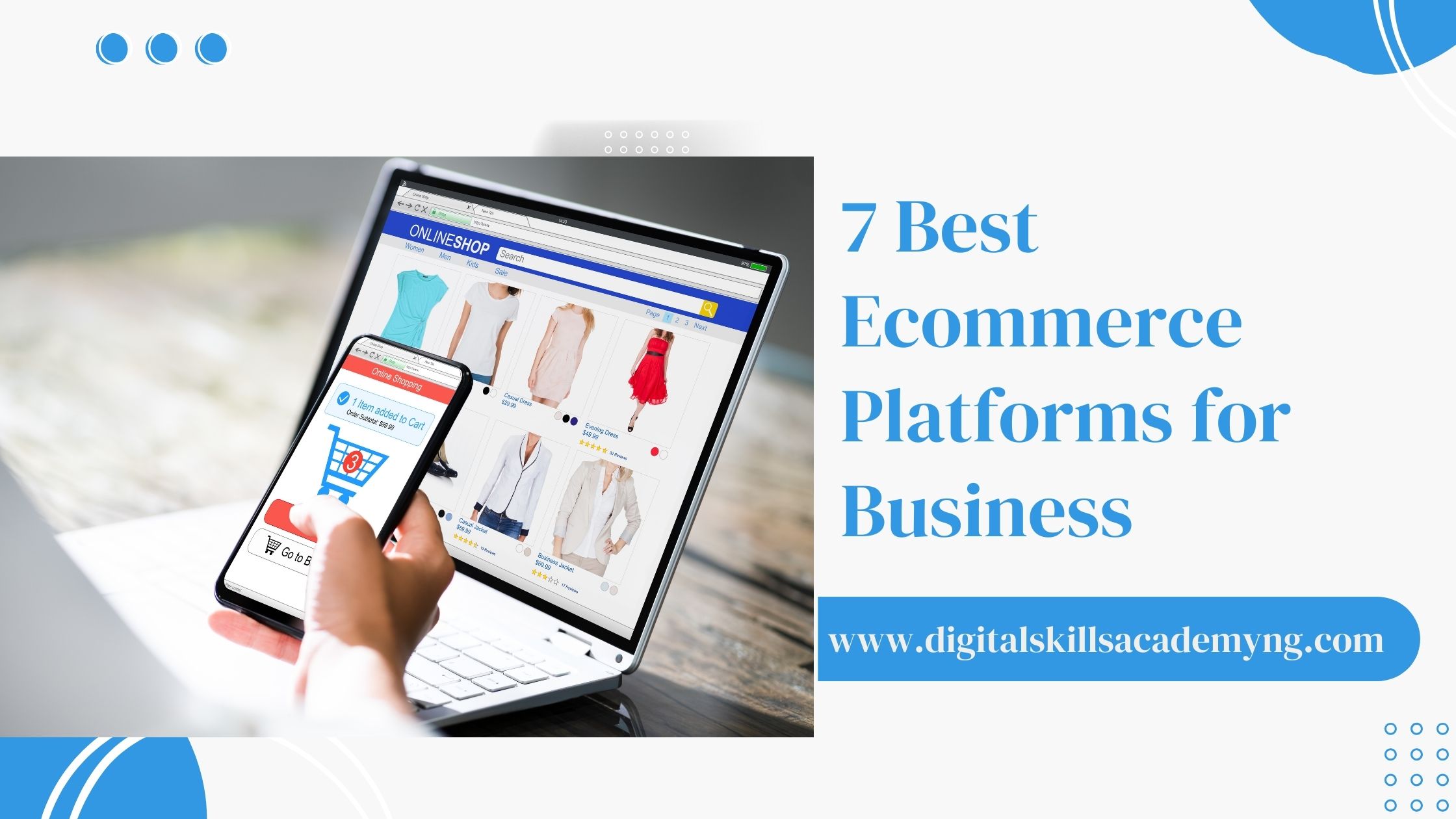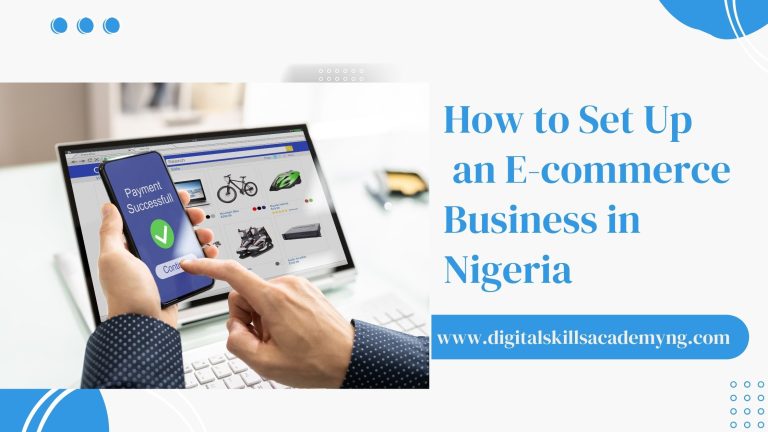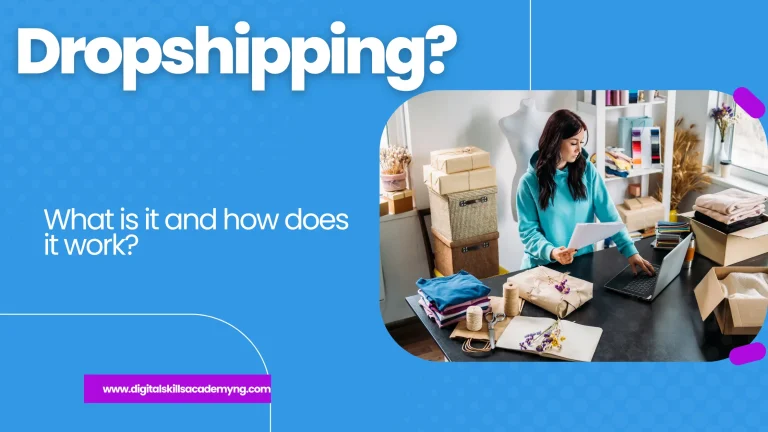7 Best E-commerce Platforms for Businesses in Nigeria
As more businesses transition to the digital space, choosing the right e-commerce platform has become crucial for growth, especially in Nigeria’s rapidly evolving market.
This article explores what an e-commerce platform is, how to identify a quality platform, and reviews seven of the best options for Nigerian businesses.
Additionally, we’ll look at pricing, dropshipping capabilities, the best B2B e-commerce platform, and headless e-commerce platforms, as well as why understanding e-commerce marketing is key to online success.
WHAT IS DROPSHIPPING AND HOW IT WORKS
Table of Contents
What is an E-commerce Platform?
An e-commerce platform is a software solution that allows businesses to build and manage online stores where customers can browse products, make purchases, and interact with the company online.
Beyond the storefront, e-commerce platforms support various business needs, including inventory management, payment processing, customer relationship management, and even marketing automation.
Some platforms are designed to help businesses scale quickly, while others are more suited to small or niche operations.
How to Identify a Good E-commerce Platform
When selecting an e-commerce platform for your business, consider the following factors:
- Ease of Use:
The platform should be intuitive, allowing you to set up, manage, and scale your store without complex processes.
- Customization:
Look for a platform that offers customizable templates or the flexibility to build a unique brand experience.
- Payment Integration:
Verify that the platform supports popular payment gateways in Nigeria, such as Paystack, Flutterwave, and Interswitch, to enable seamless transactions.
- Mobile Responsiveness:
With mobile commerce growing in Nigeria, ensure the platform provides a responsive design for an optimal mobile shopping experience.
- Customer Support:
A reliable support team is essential for troubleshooting and guidance, especially if you’re new to e-commerce.
- Security:
Cybersecurity is critical in e-commerce.
Opt for platforms that prioritize security features like SSL certification and encryption to protect customer data.
7 Best E-commerce Platforms for Nigerian Businesses
Shopify
Overview: Shopify is a globally renowned e-commerce platform known for its simplicity and scalability. It offers various templates, customization options, and integrations.
Pricing: Plans start at $39/month, with a 14-day free trial.
Features: Shopify supports integrations with payment gateways like Paystack, essential for Nigerian businesses, and offers extensive app integrations.
Best for: Small to medium-sized businesses looking for an all-in-one solution.
Dropshipping: Shopify is ideal for dropshipping through apps like Oberlo or Spocket.
BigCommerce
Overview: BigCommerce is a powerful platform offering a vast array of features suited for medium to large businesses that need scalability.
Pricing: Starts at $39/month with a 15-day free trial.
Features: BigCommerce offers SEO tools, omnichannel selling, and an extensive app store, allowing businesses to customize their stores.
Best for: Established businesses needing advanced features and scaling capacity.
Dropshipping: It supports dropshipping through various plugins and integrations.
WooCommerce
Overview: WooCommerce is a WordPress plugin that allows you to turn your WordPress website into a fully functional e-commerce store.
Pricing: Free to install, but additional costs apply for hosting and premium plugins.
Features: WooCommerce is highly customizable with access to thousands of plugins, making it ideal for businesses with specific needs.
Best for: Small businesses or those familiar with WordPress.
Dropshipping: WooCommerce supports dropshipping through plugins like AliDropship and WooDropship.
Flutterwave Store
Overview: Flutterwave Store is a straightforward platform for African businesses, particularly popular in Nigeria, designed for small and medium-sized merchants.
Pricing: Free to set up; transaction fees apply.
Features: Flutterwave offers a simple setup, and inventory tracking, and accepts multiple local and international payment options.
Best for: Local businesses starting with e-commerce or those needing a fast, accessible solution.
Dropshipping: Limited support for dropshipping, more suited to direct sales.
Konga Marketplace
Overview: Konga is a major Nigerian online marketplace, offering a platform where businesses can list their products alongside other sellers.
Pricing: Free to join, with commission fees on sales.
Features: Konga handles the technical setup, allowing sellers to focus on their listings and sales.
Best for: Small businesses looking for increased visibility without managing an independent online store.
Dropshipping: Not supported; sellers must handle inventory.
Jumia
Overview: Jumia is another leading Nigerian marketplace, known for its extensive customer base across Africa.
Pricing: Free to join, with a commission-based model on sales.
Features: Jumia offers marketing support, logistics, and customer support services.
Best for: Vendors wanting to reach a broad audience without handling logistics.
Dropshipping: Not supported; sellers are required to have their inventory.
Magento (Adobe Commerce)
Overview: Magento is a robust, open-source e-commerce platform with extensive customization options best suited for medium to large businesses with technical resources.
Pricing: Free for the Community Edition; the Enterprise version starts at $22,000/year.
Features: Magento supports extensive customization, multichannel selling, and complex inventory needs.
Best for: Larger businesses with technical teams or a budget for development.
Dropshipping: Supported through third-party extensions.
Which E-commerce Platform is best for Dropshipping?
Shopify is one of the best options for Nigerian businesses interested in dropshipping, due to its ease of use, global integrations, and access to dropshipping apps like Oberlo. WooCommerce is also a viable choice, especially for those already using WordPress.
What is the Best B2B E-commerce Platform?
Magento (Adobe Commerce) stands out as a robust B2B e-commerce platform, supporting extensive product catalogs, customized pricing, and complex transactions.
It allows businesses to cater to both B2C and B2B markets, ideal for Nigerian wholesalers and distributors looking to scale.
What is a Headless E-commerce Platform?
A headless e-commerce platform is a type of architecture that separates the front end (user interface) from the back end (database and functionality).
This decoupling allows businesses to control how they present products across different devices and interfaces, whether a mobile app, website, or IoT devices.
Headless e-commerce platforms are highly flexible, making it easy for developers to customize the experience while using the same backend systems.
For Nigerian businesses focused on a unique or branded user experience, headless platforms like Magento or Shopify Plus (if customized for a headless approach) offer flexibility to create personalized experiences without altering the backend infrastructure.
Conclusion
Choosing the right e-commerce platform is crucial to your online business success in Nigeria.
Whether you’re a startup seeking to test the waters with Flutterwave Store or a scaling business using BigCommerce, the ideal platform should align with your budget, business goals, and customer expectations.
The journey doesn’t end with setting up a store, effective e-commerce marketing is vital for driving traffic and converting visitors into loyal customers.
By enrolling in our Digital Marketing Course, you can learn strategies for increasing visibility, optimizing SEO, managing social media, and boosting sales on your chosen e-commerce platform.
Join today to elevate your e-commerce business to new heights!




